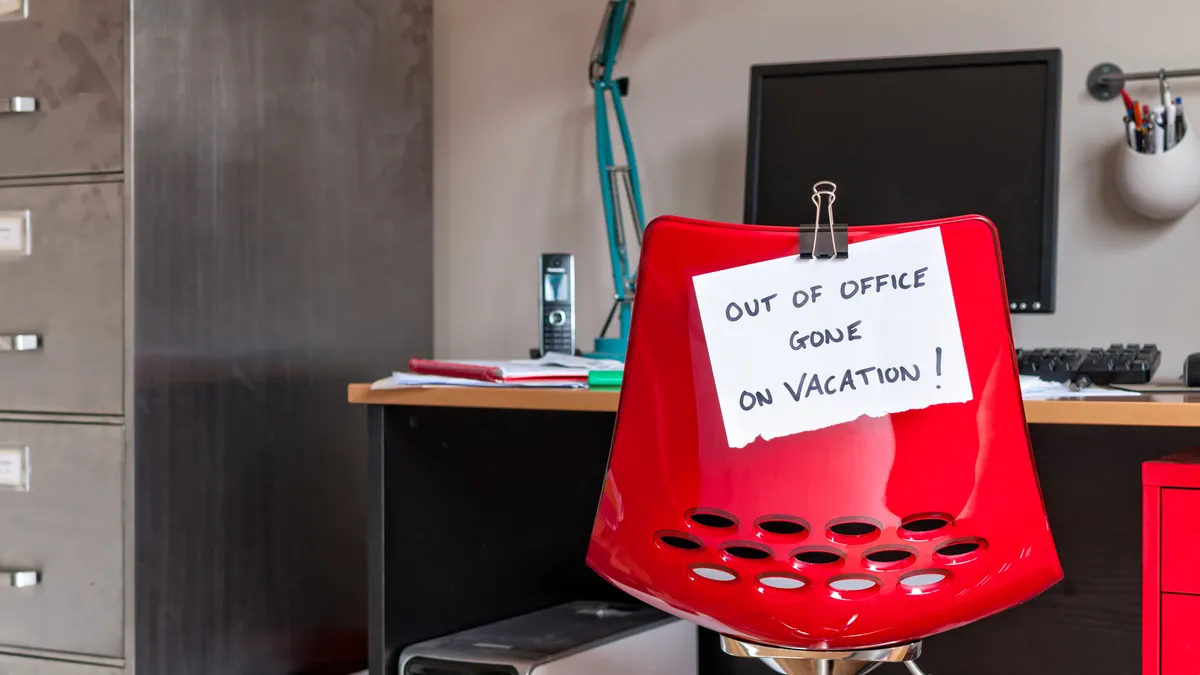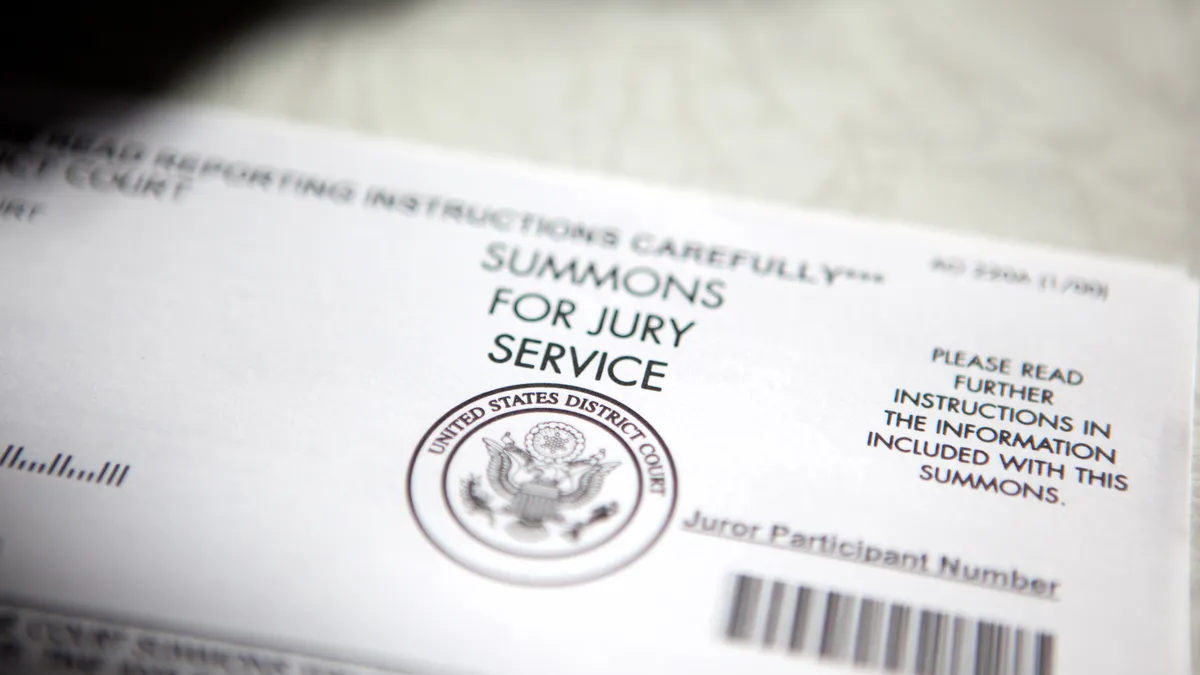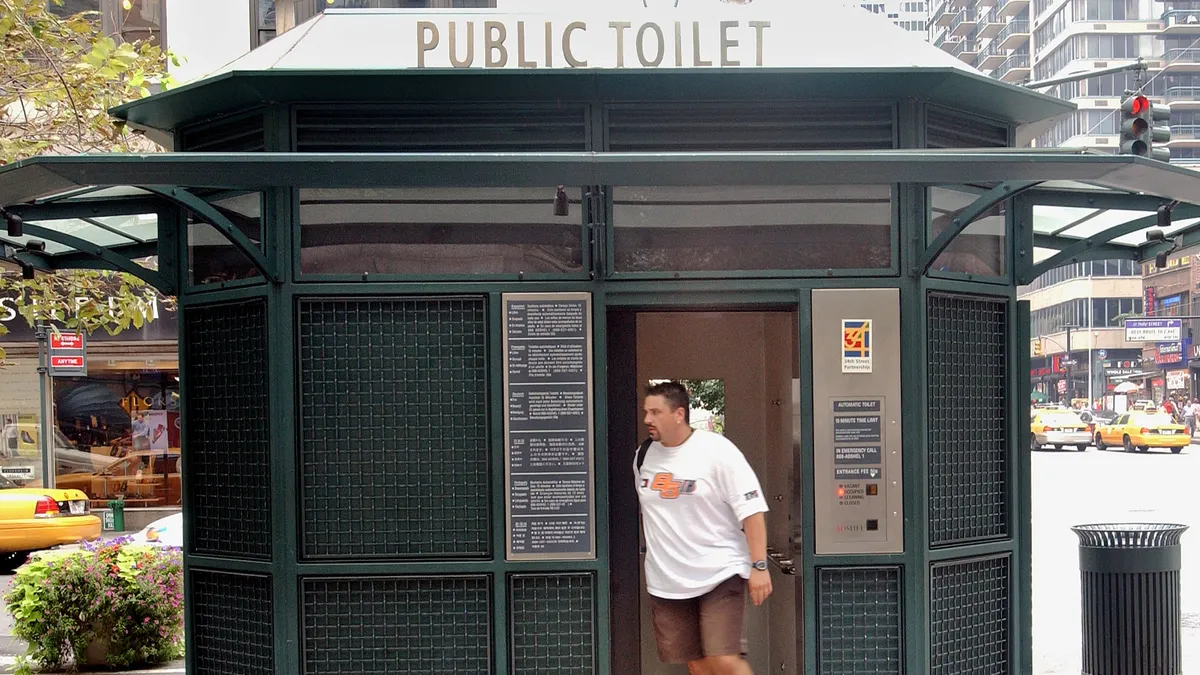Editor’s Note: ‘Happy Hour’ is an HR Dive column from Reporter Ginger Christ. Follow along as she dives into some of the offbeat news in the HR space.
Jim and Pam. David and Patrick. Ben and Leslie. Workplace romances work on the TV screen, but do they hold up in real life?
Among employees who have returned to the office, 29% of the 1,448 surveyed by ResumeBuilder.com this month said they have started a romantic relationship with a co-worker, and 25% have formed a crush on a colleague.
And it seems to be going well…mostly. Sixty-six percent of those who have had a relationship with a co-worker said it had a positive effect on their work, while 6% reported a negative effect and 28% said it didn’t have an impact, per the ResumeBuilder.com survey.
The pros: being excited to go to work, experiencing improved mental health and the relationship helping them get a raise or promotion.
The cons: finding it stressful to go to work, being distracted and seeing a decline in mental health.
The Society for Human Resource Management’s 2024 Workplace Romance and Relationships Report, which will be released on Valentine’s Day, had similar findings.
The majority of U.S. workers currently in a workplace romance said the relationship had a positive or extremely positive impact on their professional lives, improving their mood, motivation, sense of belonging, commitment to the organization and work/life balance, the SHRM report found.
And 74% of those surveyed by SHRM who were previously in a relationship with a co-worker said it was worth it.
The debate arises over whether to give HR the tea about a steamy partnership.
Fifty-eight percent of those with a boo in a nearby cube haven’t informed HR about the relationship, per the ResumeBuilder.com survey.
“I encourage people to check their employee handbook for policies around dating co-workers. Some places don’t allow it, and others require you to acknowledge the relationship,” Resume Builder’s Resume and Career Strategist Julia Toothacre said in a blog post on the results, which were released Feb. 8.
Sixty-four percent of the approximately 1,000 U.S. workers surveyed by SHRM frowned upon companies having policies prohibiting workplace romances, but 78% were in favor of organizations offering guidance on how to handle those relationships.
Where things get tricky is when those relationships involve superiors and subordinates, Toothacre warned.
“While in-office romance has always been around, it’s important to understand the implications of these relationships,” Toothacre said. “There is a power dynamic when it’s a boss/subordinate relationship, which can lead to things like favoritism or getting let go if the relationship ends.”
Fifty-five percent of those surveyed by ResumeBuilder.com said at least one of their office romances involved a superior, and 47% said one of their relationships was with a subordinate.
Gjording Fouser, an Idaho-based law firm, has said workplace romances and relationships involving subordinates can open a company up to liability.
“If a workplace romance sours, the possibility for liability soars because one of the employees could claim sexual harassment, retaliation or that the relationship was non-consensual,” the firm wrote. “Likewise, if the relationship was between a supervisor and a subordinate, then other subordinate co-workers may claim nepotism or discrimination because of that workplace relationship.”
As even TV has taught us, it’s always risky to get involved with a co-worker. Because, as poet John Lyly first expressed, all is fair in love and war.
But for the hopeless romantics out there, maybe not all hope is lost after all. Everyone deserves a “simply the best” Dan Levy moment.




































